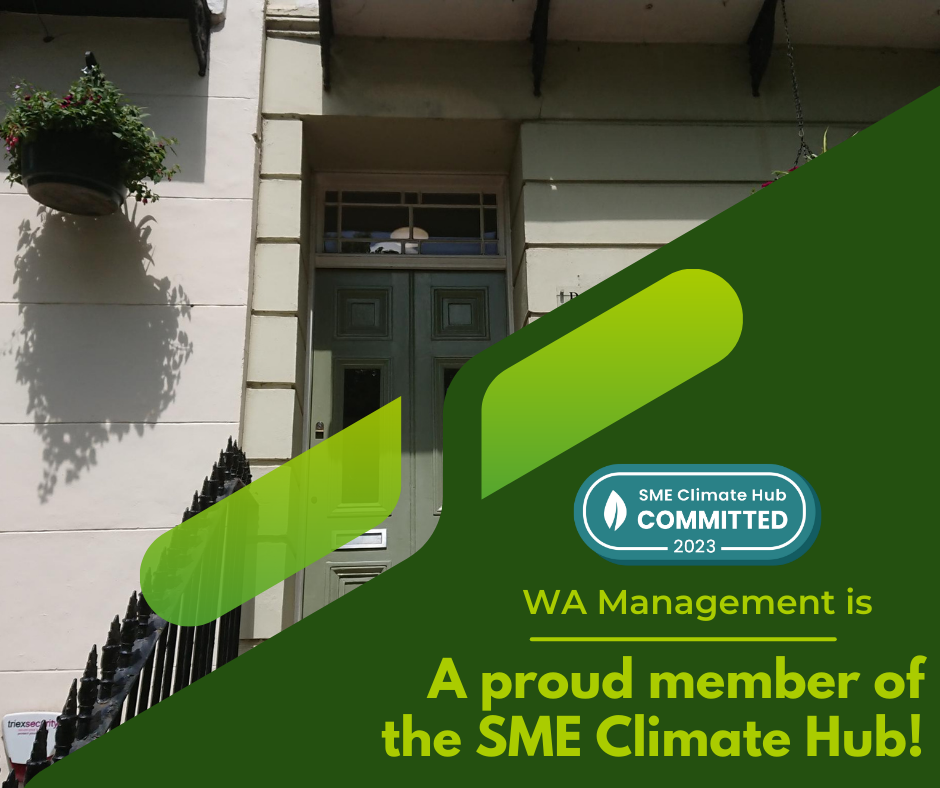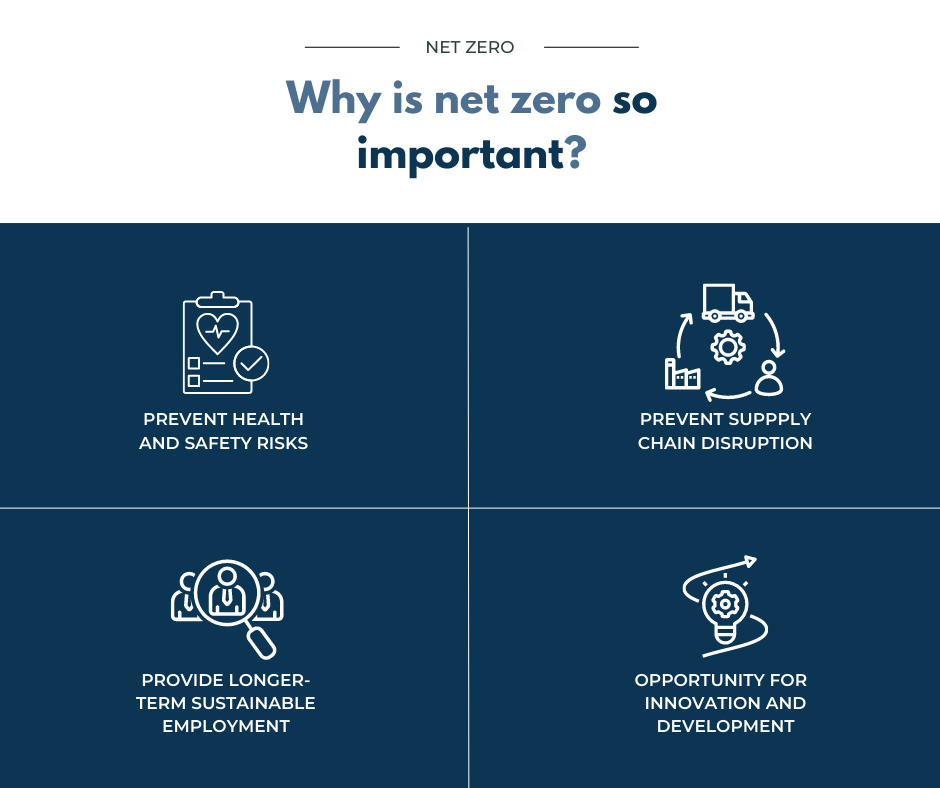
 Sustainability is a hot topic across all industries at the moment, not least the construction industry, where PQQs and SSIPs are increasingly focused on environmental issues – and rightly so! The built environment accounts for 39% of annual carbon emissions worldwide, made up of both operational carbon, which is the ongoing carbon emissions from its day-to-day use, and embodied carbon, emissions from producing materials.
Sustainability is a hot topic across all industries at the moment, not least the construction industry, where PQQs and SSIPs are increasingly focused on environmental issues – and rightly so! The built environment accounts for 39% of annual carbon emissions worldwide, made up of both operational carbon, which is the ongoing carbon emissions from its day-to-day use, and embodied carbon, emissions from producing materials.
However, all businesses have the scope to take climate action – as an SME ourselves, we have signed up to The SME Climate Hub, pledging to reach net-zero carbon emissions by 2040!
So, what does net zero look like, and what changes can you implement to make a difference?
What does it mean to go net zero?
 Net zero refers to cutting greenhouse gas emissions to as close to zero as possible, with any remaining emissions re-absorbed from the atmosphere, by oceans and forests for instance.
Net zero refers to cutting greenhouse gas emissions to as close to zero as possible, with any remaining emissions re-absorbed from the atmosphere, by oceans and forests for instance.
This is likely to be achieved using a blend of methods, such as transitioning our energy sources away from fossil fuels to cleaner renewable energy such as wind and solar or altering company processes so that they do not produce greenhouse gases.
A similar term, carbon neutrality, is used which describes when additional methods are used to offset any emissions that cannot be removed in this way. Such as enhancing our ability to remove greenhouse gases from the atmosphere such as planting trees or utilising carbon capture technology.
What are the UK climate pledges?
In 2019 the UK government passed legislation to become the first major economy to make it a legal requirement that the UK achieves Net Zero by 2050. Due to this legal requirement, the government will establish regulatory mechanisms to coax the UK economy to align to achieve this target.
This is currently being implemented through the ‘Powering Up Britain: The Net Zero Growth Plan’. This plan sets out the government’s industrial strategy in achieving net zero, inclusive of reducing emissions across the economy such as Power, Industry and Transport; as well as supporting and empowering the public and businesses in the transition.
Collectively the UK will need to achieve the net 2050 zero target, which will require businesses of all sizes to commit to the same endpoint. To commence this journey businesses should establish a policy which makes a commitment to achieving this, setting objectives and arrangements.
Like all management systems, the management of greenhouse gas emissions require data for us to understand where we are and where we’re going. The SME Climate Hub has tools and resources that can assist in capturing this data that is aligned with the Science Based Targets initiative.
Why is net zero so important?
 Recent research has found that over half of UK businesses are already affected by climate change and this is likely to be a significant risk factor going forward for all UK businesses.
Recent research has found that over half of UK businesses are already affected by climate change and this is likely to be a significant risk factor going forward for all UK businesses.
Extreme weather events, such as heat waves, droughts, flooding and storms not only cause a direct risk to businesses, but also can also cause huge disruption to normal supply chain effectiveness many businesses are reliant upon.
This not only interrupts normal working processes, but creates uncertainty for investors and may cause businesses to reimagine their current global supply chains to more stable localised versions that can have direct impact on costs.
Reaching Net Zero is not just about minimising negative risks but harnessing the positive opportunities associated with the transition. Rethinking working practices can lead to efficiencies that are forever sought in lean manufacturing models.
Re-training and establishing the workforce into green jobs may provide longer-term sustainable employment as opposed to previous finite fossil fuel-based economies. And opportunities in new technologies required to power the green economy exist through innovation and development.
How can WA Management help?
Net Zero falls under the wider scope of environmental impact and sustainability. WA Management has a proven track record of supporting businesses with the implementation, maintenance and development of environmental management systems. This can be achieved to internationally recognised standards such as ISO14001:2015, or less formally be implemented as a Net Zero plan. We also offer a number of applicable online training courses, including Environmental Awareness and Resource Efficiency.

Environmental Awareness and Resource Efficiency courses can help your workforce gain an understanding of how they can reduce their environmental impact. Make sure you don’t miss out on our 10% off deal on these courses, available until the end of June. Simply enter the code ‘carbon10’ at checkout to save!
Read more Consultant’s blogs here.
To keep up to date with the latest health & safety news and advice, follow us on social media:
